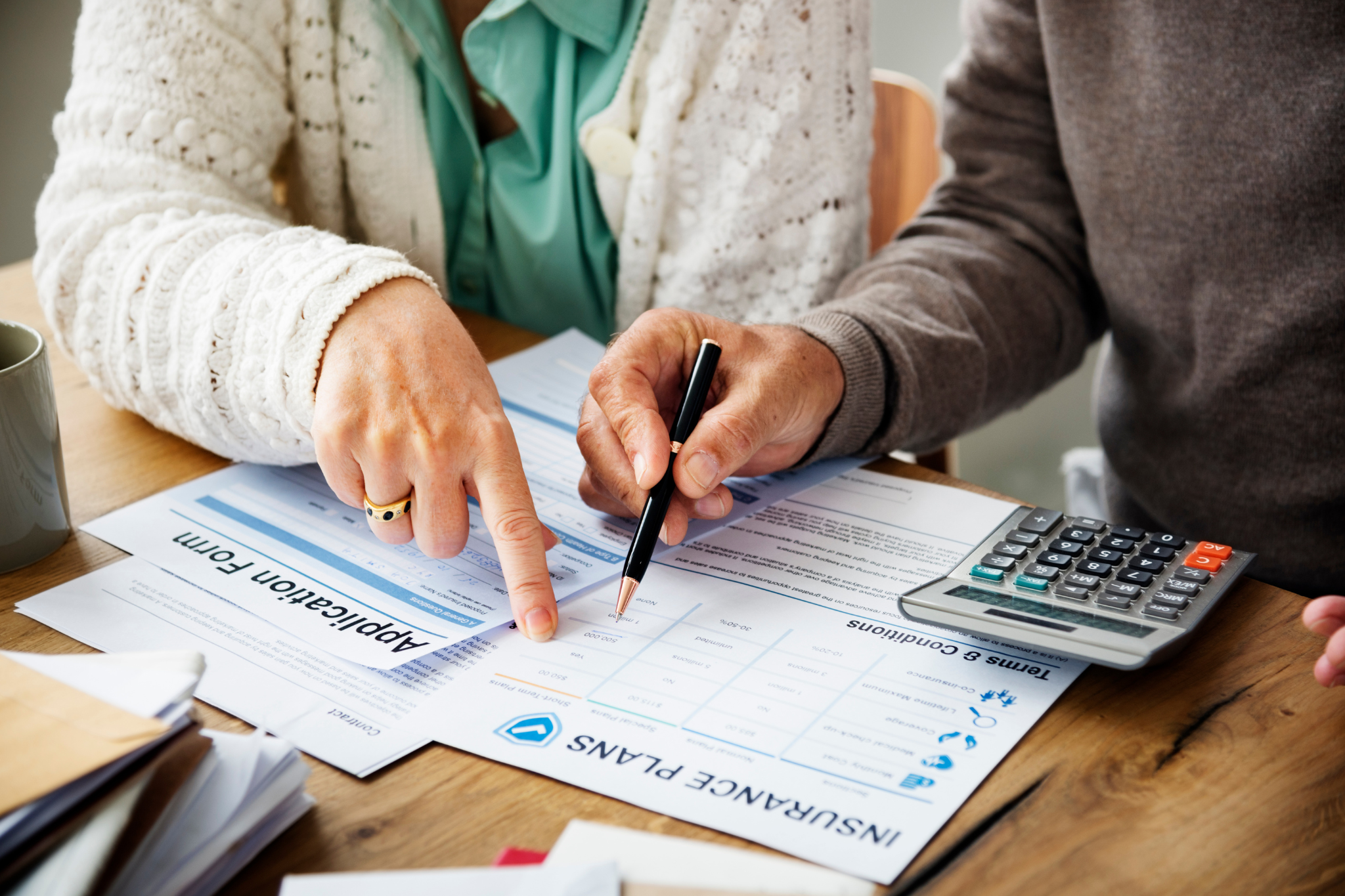
Digital platforms: The complaints nightmare
Last updated on July 1st, 2022
In January this year, thousands of Crypto.com users were locked out of their accounts when the digital platform was forced to change security settings after it was hacked. To add insult to injury, support channels were not working and all users were told by the platform’s CEO was that "you could be using the wrong email address" — via a Tweet.
Chances are you have experienced something similar. New research has found that almost three-quarters of Australians are dissatisfied with how complaints are being handled on digital platforms.
There’s no stopping the boom in digital platforms — the websites and apps such as social media, Government online services, job search sites, dating apps, messaging and online marketplaces have become such an intrinsic part of our lives that we don’t even think about them anymore. Until something goes wrong.
While they are often more convenient and efficient than traditional methods of, say, finding a job or meeting a partner, the experience of using these platforms can also be frustrating and confusing. And if something goes wrong, it can be difficult to get a resolution.
So what are the most common complaints and what, if anything, can you do if you’re affected? And is there any regulation to protect you?
The digital landscape
Gone are the days when you had to trawl through the newspaper circling job ads and sending off applications in manila envelopes. Now, you can upload your CV in minutes and even direct message the prospective employer to get some more intel before you apply for a job.
Social media platforms also enable you to keep in touch with family and friends on the other side of the world instantly. There are so many ways that digital platforms have made our lives easier.

But all this convenience is not without its drawbacks. The platforms you use to search, stay in touch and get other services create different headaches. And it’s often difficult to find someone to resolve them.
In the past, you could go to the provider’s store or office and ask to speak to a manager, or pick up the phone and ask to do the same. But with digital platforms, it’s difficult to talk to a human being. You invariably have to go through a long and tedious process of emailing or filling out a complaint form. Or you might tweet at the platform and hope that your “voice” is heard among the masses.
Even if you do finally get through to someone, they often don't seem to care about your problem. They might not resolve it, or they might take an inordinate amount of time to do so.
What are the most common complaints?
According to a recent study published by the Australian Communications Consumer Action Network (ACCAN), these are the most common issues with digital platforms:
There's a lack of protection of people’s safety and privacy
Have you ever felt like you’re being spied on when using social media apps? You search for “hats” on Google, then boom! 10 hat-related ads appear as soon as you log in on Facebook. You’re not alone.
According to the study, 79 percent of respondents complained about the lack of protection of people's safety and privacy. Digital platforms can be a goldmine for hackers, and people often don't feel safe using them. If it’s not hackers making life miserable, it’s marketers exploiting the data collected on some platforms.
In 2020, the Australian Competition and Consumer Commission (ACCC) instituted proceedings against Facebook for allegedly duping consumers into believing its now-defunct app, Onavo Protect, a virtual private network, “would keep users’ personal activity data private, protected and secret, and that the data would not be used for any purpose other than providing Onavo Protect’s products”. But the ACCC claims the opposite happened, with the app mining personal activity data for the commercial benefit of Facebook. Onavo Protect has since been removed from app stores.
Digital platforms are not doing anything about the proliferation of fake news
In February, Australian billionaire Andrew Forrest launched legal action against Facebook for not removing fraudulent advertising bearing his image. These ads are designed to dupe you into thinking well-known figures have made a significant investment in X company so you, too, should invest in it.

Seventy-nine percent of survey respondents believed platforms should be responsible for the content on their sites. Fake news is everywhere on the internet, with Facebook coming in for some of the biggest criticism for enabling the spread of false information. There was a proliferation of people using the platform to push the line that 5G is the reason we have Covid. There’s so much misinformation on there about the pandemic, in fact, that the Trustees of Princeton University had to create a dedicated page to combat it.
It's hard to know who to trust. Yet, the platforms are not doing anything about it. Sometimes the content is so well done it convinces even the sceptics, even if it is completely made up.
There’s no one to complain to
Remember when Facebook and its other platforms, including Instagram, WhatsApp and Messenger, went down globally for almost six hours, affecting billions of users and a whole lot of our personal and business transactions? We couldn’t do anything. The only resort we had was to unleash our inner keyboard warrior on Twitter. But did we get any compensation for the inconvenience? Nada. Zero. Nil.
A similar thing happened to Service NSW just a month later, when the app went down for several hours due to technical issues affecting the COVID Safe check-in function and other features. It inconvenienced 2.5 million restaurant and bar patrons, who were unable to register and were locked out of the app after five attempts.
A few months before that, eBay faced a probe by the ACCC for allegedly unfair practices. Some sellers complained their accounts were deactivated for no valid reason and they had "great difficulty trying to contact somebody to remedy whatever the concern is”.
eHarmony is another site that's complained about a lot. Consumers have complained about being matched with partners that they're not compatible with, being charged for services they never signed up for, and being given the runaround when trying to get a refund. To make matters worse, the subscription is not cheap. You’d expect better service for the price, even if it is online.
Why are digital platforms so hard to complain to?
One reason platforms don’t really care about our complaints is our dependency on them. We keep using them even when we’re not happy with them. So they aren’t forced to do something about low trust levels. Like that extra sugar hit, we keep going back for more, even though we know it’s not good for us.
This is often due to the fact we have already built up connections using a platform. And those connections are hard to give up. Facebook is still the biggest social networking platform with 2.9 billion monthly active users, so even though more and more of us are aware of its drawbacks, we haven’t shut our accounts.
Secondly, we are unaware of our rights, such as the right to access the internet, the right not to be discriminated against and the right to privacy when we use these platforms. When something’s amiss, we don’t even know where to turn. If we have a complaint about a platform, for example, we can’t leave a bad review if it has turned off the review feature on its social media page. Some platforms also spend a huge amount on social media managers so they can immediately delete negative customer feedback. There could be positive reviews, but they could be fake.
Finally, the regulators don’t seem to be doing enough to protect us. In the ACCAN survey, only 27 percent of respondents believed the government was doing enough to ensure digital platforms do the right thing.
In Australia, there’s no organisation that represents community interests on digital platform issues. They have yet to develop a plan of action and ensure that it's effective. Whilst the Digital Industry Group (DIGI) launched a misinformation complaints portal, it’s only for the spread of misinformation and nothing else.
It could also be that the regulators might not be aware of the problems you are having. They need to do more to encourage consumers to provide feedback and find out what the problems are.
How can we make it easier to have a complaint resolved?
We need to demand better from our digital platforms. But first of all, we need to be more aware of our rights. We need to know what the laws are that protect us such as the Privacy Act and the Australian Consumer Law and make sure that we're following them.

Secondly, we need to stand up for those rights, and we need to make our voices heard. If more people complained, the regulators would be more likely to take action. Only then will things start to change. But we have to complain the right way. One common mistake we make when we have an issue with a product or service is to get emotional. And we tend to throw facts out the window. Keep the conversation constructive (whether it’s in person, via telephone or mail). Be polite, factual and authoritative. Discuss the outcome or resolution that will make you happy.
Thirdly, we need to vote with our wallets - or at least with our patronage. If a platform isn't treating us well, we need to stop using it. Find an alternative if you can, or simply weigh up the cost-benefit ratio and walk away.
Finally, we need to be more organised. We can do this by forming action groups or by signing petitions, such as the ones on the Australian Parliament House website.
Digital platforms are part of our lives now, and they're not going away. But we need to make sure that they're working for us, not against us. Let's make sure that the regulators hear our complaints and do something about them!
One way you can ensure your voices are heard is to lodge your complaint with us. And we’ll make sure the digital platform listens.






